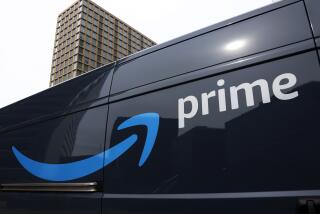Microsoft Sees Study as Ally in Antitrust Case
- Share via
Good products sell. Bad products don’t.
The notion might seem obvious, but academics have long questioned whether it’s true in the technology world. And concerns that Microsoft Corp. illegally uses its market power to tip the balance in its favor is at the heart of the Justice Department case against the software giant that is set to go to trial this month.
Now two upcoming academic studies provide evidence Microsoft hopes it can use to buttress its case that it is the market, not the exclusionary deals the government alleges it made, that is really selecting winners and losers in the Internet software war.
University of Texas economist Stan Liebowitz and North Carolina State University’s Stephen Margolis, in an upcoming book, looked at six software products and found in every case that changes in market share reflected changes in the quality of the products, as measured by reviews in the trade press.
Take Lotus 1-2-3. That spreadsheet product was the overwhelming standard in the early 1980s. Microsoft’s spreadsheet product, Excel, surpassed Lotus in the 1990s not because Microsoft was better able to exploit inside information about its new Windows operating system, as many have charged, but because its product was perceived to be better as measured by the high ratings it received in reviews compared with Lotus 1-2-3, Liebowitz argues.
Liebowitz and Margolis received national attention earlier this year when they published a study debunking the notion that standards like the “Qwerty” keyboard and the VHS videotape system prevailed despite their technical inferiority.
Earlier research had suggested that VHS beat Beta not because it was technically superior but because of “path dependence,” the notion that once a standard is widely used people are unlikely to switch to another technology, because of the inconvenience involved.
Now the two argue in their upcoming study that they found no evidence for a similar notion in the software world that people won’t switch even if a new and better software system comes along.
Their study points out that Excel, and later Microsoft’s word processor Word, proved their mettle first on the Apple Macintosh computer, where Microsoft presumably had no advantage over competitors. In each case, better reviews eventually resulted in improved market share.
By the same token, Microsoft’s ability to package software with its operating system for free has not been the magic elixir competitors have argued it would be.
Microsoft packaged MSN, its online service, with its Windows operating system, but the product was a failure and had to be revamped a year later. Similarly, while Microsoft packaged Internet Explorer with its Windows 95 operating system in 1995, the product only won widespread use two versions later, with Internet Explorer 3.0, when reviews of the product put it on a par with Netscape products.
The company’s personal finance product, Money, has long had trouble gaining share against Intuit’s Quicken in spite of the software giant’s considerable market power, because it was perceived to be a lower-quality product.
Rick Rule, a legal consultant to Microsoft, says Liebowitz’s findings undercut the Justice Department’s notion that so-called network effects, the tendency of a market to gravitate toward a single dominant product, makes Microsoft an enduring monopoly. “The studies show that in every case, when a technically superior product appears the market tends to find a way to move toward them,” said Rule.
Michael Cusumano, a Massachusetts Institute of Technology business professor who has done extensive research on the VHS-Beta battle, disputes Microsoft’s interpretation of Liebowitz’s research.
While it is clear that an inferior software product cannot succeed, says Cusumano, once a software product is comparable to an existing market leader in quality, “market power or the ability to set standards become important.”
Even though Microsoft raised the quality of Internet Explorer to that of rival Netscape, Cusumano argues, Microsoft’s various high-pressure tactics still played a key role in helping to boost its market share. Whether Microsoft used its market power illegally, Cusumano says, is a question for the courts.
Ironically, Microsoft is looking to Cusumano’s book, coauthored with Harvard business professor David Yoffie and titled “Competing on Internet Time: Lessons From Netscape and Its Battle With Microsoft,” as a core part of its defense.
Outside lawyers at Microsoft who have seen the manuscript say the book details at length problems in Netscape’s software development effort that contributed to its loss of market share. Among the problems reportedly discussed are sloppy code writing and a weak product foundation that resulted in mounting problems as Netscape added code from version to version.
Microsoft asked a court Thursday to force the professors to hand over tapes and transcripts of interviews they conducted with Netscape.
“Candid concessions by senior Netscape personnel that their own mistakes are responsible for the declining popularity of Netscape’s Web-browsing software are fatal to the government’s contention that Netscape’s problems can be laid at the feet of Microsoft,” Microsoft said in a document filed in U.S. District Court in Boston.
Cusumano and Yoffie are refusing to hand over their research materials, claiming “scholar privilege.”
While Cusumano says he can’t go into details about his own book because of the ongoing lawsuit, he says the book deals extensively both with what Netscape did right as well as what it did wrong.
“I don’t know if you can even argue that the mistakes [Netscape] made led to their downfall,” said Cusumano. “I don’t know if this exonerates Microsoft.”
More to Read
Inside the business of entertainment
The Wide Shot brings you news, analysis and insights on everything from streaming wars to production — and what it all means for the future.
You may occasionally receive promotional content from the Los Angeles Times.










